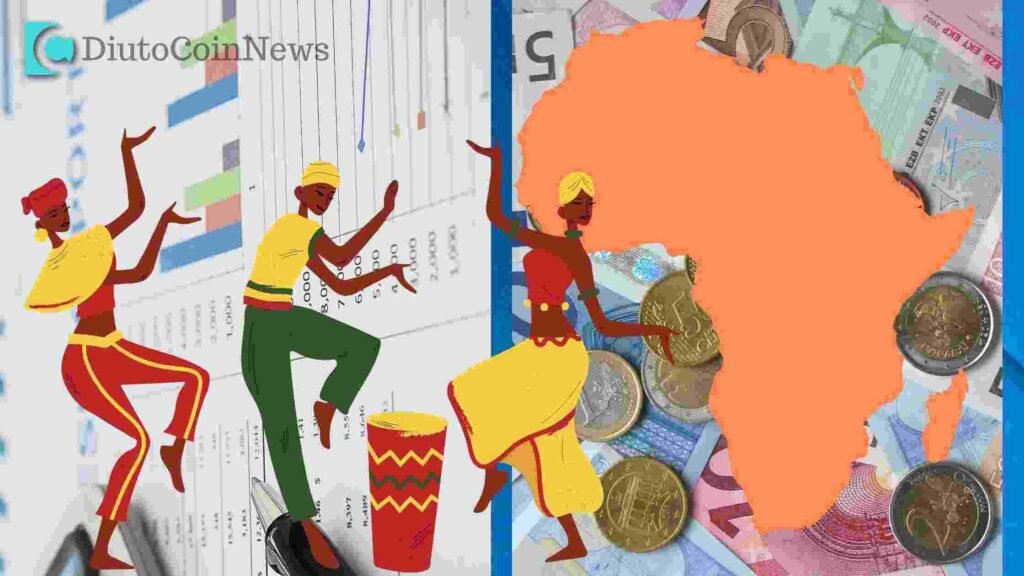Nigeria
As of the first quarter of 2022, Nigeria’s public debt rose to N41.6 trillion from N39.56 trillion recorded at the end of December 2021, putting enormous pressure on debt servicing.
According to the International Trade Center, between 2020 and 2021 Nigeria spent $5.3bn to supplement its electricity and electrical needs. It stated that imported electrical machinery, equipment, and parts included electric motors and generators, electric generating sets and rotary converters, electrical transformers, and static converters.
The Minister of Communication and Digital Economy, Isa Pantami, announced that the Federal Government had suspended its planned implementation of a 5.0% excise duty on telecommunication services.
Data from the Nigerian Inter-Bank Settlement System revealed that POS transactions in the first seven (7) months of the year totalled N4.61tn, costing users a total of N92.2bn in the same period under review.
According to the Central Bank of Nigeria’s (CBN) Sectoral Analysis of Deposit Money Bank’s Credit, debts accruing to operators within the manufacturing sector rose 11.0% to N4.5trn between Dec-21 and Jun-22. This is despite the CBN’s inability to keep its single-digit lending rate to the sector in the current double-digit interest rate environment.
The Federal Executive Council (FEC) has approved the National Social Investment Programme (NSIP) Establishment Bill, 2022. The Executive Bill ratifies the NSIP, establishing it as an institution to drive the administration’s agenda to lift 100 million Nigerians out of poverty by 2030. In addition, the council approved the National Flood Emergency Preparedness and Response Plan for Nigeria to ensure a more resilient and effective response to tackle flooding nationwide.
Ghana
According to the S&P Global release, the purchasing managers’ index for the Ghanaian private sector declined to 45.9 in August from 48.8 in July. The lowest point since April 2020. In addition, output fell to 45.2 from 49.7 in July, the eighth consecutive month of contraction.
The National Seed Trade Association of Ghana (NASTAG) has called on the government to settle GH₵207.0mn worth of debts owed to its members to supply seeds for the 2021 cropping season.
The Ministry for Lands and Natural Resources within the Forest Law Enforcement, Governance and Trade (FLEGT) Framework has launched the GWT-DSS, a Wood Tracking-Decision Support System, to track and traces timber from source.Serving as a timber legality assurance system to improve transparency, efficiency and legality in the timber trade in European and domestic markets.
Kenya
Kenya’s Supreme Court upheld William Ruto’s victory in the last month’s presidential election, dismissing his rival, Raila Odinga’s claim that the vote was marred by rigging and irregularities. The court found no discrepancies in the vote tallies and no credible evidence that the electoral commission’s system had been breached.
According to the IHS Markit, Kenya’s Purchaser’s Managers Index (PMI) fell to 44.2 in Aug-2022 from 46.3 in Jul-2022, indicating the fifth consecutive month of contraction in the country’s private sector at the fastest pace since Apr-2021. Output and new orders declined quicker amid disruptions caused by the national election.
According to the Energy and Petroleum Regulatory Authority, Kenya plans to rely on imports of electricity to lower the general cost of electricity for household and industrial consumers. The country has signed a power purchase agreement with Ethiopia to purchase 200.0MW of power beginning in Nov-2022.
According to data released by the Central Bank of Kenya (CBK), three sectors (trade, real estate and manufacturing) account for more than half (54.0%) of the Sh514.0bn bad loans held by Kenyan banks in H1-2022. Bad loans in trade increased by 10.0% to record Sh109.8bn in H1-2022. The stock of bad loans in the manufacturing sector grew fastest at 57.0% to Sh89.4bn in H1-2022.
The Kenya Pipeline Company (KPC) has announced plans to build another petroleum products pipeline between Mombasa and Nairobi. The company noted that growing demand for petroleum products and an increase in petroleum product flow rates were factors responsible for the strain on the existing pipeline, which necessitated more investments, including the construction of another line.
Uganda
According to a report released by the parliamentary committee on the national economy and the state of indebtedness, Uganda’s public debt stock printed at $21.0bn in H1-2022, from $19.5bn at the end of 2021. Of the debt stock, $12.8bn is external, while $8.2bn is domestic debt. Notably, Uganda’s debt to GDP stood at 48.6%. The increase in debt is attributed to the deliberate effort by the government of Uganda to increase public investment in infrastructure.
According to the IHS Markit, Uganda’s Purchaser’s Managers Index (PMI) climbed to 50.5 in Aug-2022 from 48.2 in Jul-2022, with output and new orders expanding.
The UK Foreign Commonwealth and Development Office is set to launch a $46.0mn project to promote climate-smart job creation in Uganda.
Ugandan farmers and millers are seeking a ban on the export of maize to retain husks used to manufacture animal feeds. Following the disruption of grain supplies from Ukraine and Russia, maize stock for consumption and producing animal feeds has been limited.
South Africa
According to Statistics South Africa, manufacturing production in the country climbed 3.7% y/y in Jul-22 (lower than the market expectation of +4.1%) vs its -3.4% y/y print in Jun-22. This reflects an improvement in the country’s overall manufacturing output in July.
According to data from the South African Reserve Bank, South Africa’s current account swung to a shocking deficit in Q2-22, printing at -1.3% of GDP from a revised 2.4% surplus in Q1-22, owing to the historical dividend payments outflow to foreign investors (FDIs*), the most significant outflow in 15 yrs.
According to FNB and the Bureau for Economic Research, South Africa, the consumer confidence index improved to -20pts in Q3-22, 20.0% higher than its previous print of -25pts in Q2-22.
According to the Bureau for Economic Research and Rand Merchant Bank, South Africa’s business confidence index fell to 39pts in Q3-22, 7.1% lower than its 42pts print in Q2-22.
A report from Bloomberg disclosed the possibility of South Africans paying as much as 5.0% more on their premiums as insurers face growing global and local risks.
According to Paul Hanratty, CEO at Sanlam Ltd, mounting flood and fire dangers, as well as the obvious risks to people and infrastructure following last year’s deadly riots, is a crucial driver of the country’s deteriorating business and economic environment.
According to Bloomberg, the Rand weakened for two consecutive days last week, owing to bearish sentiments from foreign investors towards the country’s bonds amid sluggish economic growth, power outages and mounting inflation pressures.
According to Bloomberg, South Africa, the world’s second-largest exporter of citrus fruit after Spain, will voluntarily stop exporting Valencia oranges to the European Union from areas affected by Citrus Blach Spot, starting Sep. 16th.
This comes after the nation’s citrus was flagged ten times for failing to comply with rules relating to the fungal disease and because of the high risk the various poses at the tail end of the EU export season.
According to the South African Reserve Bank, the country’s gross reserve position improved by 41bps to settle at $59.8bn in August vs $59.13bn in July, contrary to economists’ expectation of a decline.
Discover more from DiutoCoinNews
Subscribe to get the latest posts sent to your email.














